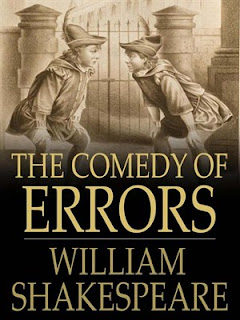“A wretched soul, bruised with adversity,
We bid be quiet when we heart it cry.
But were we burdened with like weight of pain,
As much or more we should ourselves complain.”
In a quest to focus on my Shakespeare Project for 2017, I’m reading through some of the plays following the schedule of the A Bard a Month group on Goodreads. They have The Comedy of Errors listed as the first play of Williams Shakespeare yet my The Life and Works of William Shakespeare has it listed as the 5th. From the evidence, the only thing that’s certain is that no one knows for sure, right? In any case, it definitely shows in its structure and method a rather simple presentation of a budding farce that nevertheless manages to capture the audience’s interest and tickle their humour.

